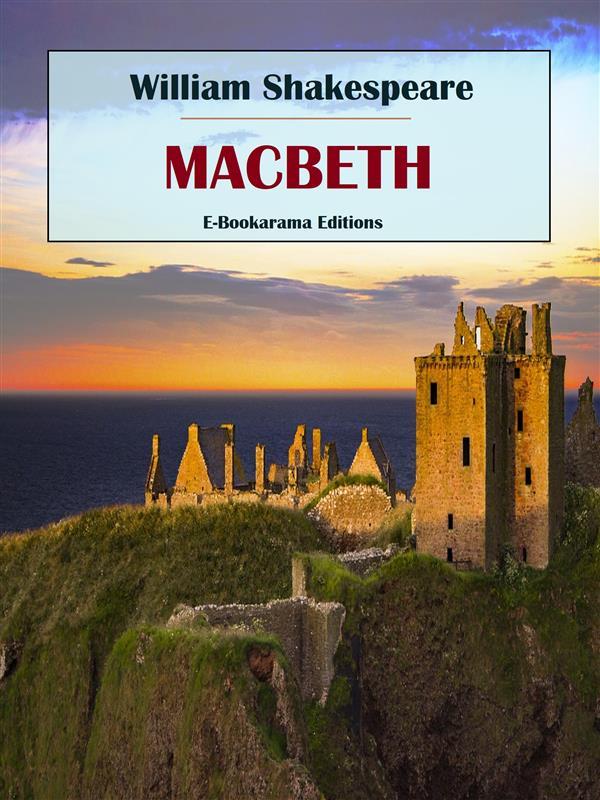
Sofort lieferbar (Download)
"Macbeth", tragedy in five acts by William Shakespeare, was written sometime in 1606-07. The play is the shortest of Shakespeare's tragedies, without diversions or subplots.
Macbeth, Thane of Glamis, receives a prophecy from a trio of witches who predict that he will become Thane of Cawdor and "king hereafter." His wife, Lady Macbeth, urges him to seize the opportunity and take the throne. One night, Macbeth murders King Duncan in his sleep and frames the guards for the crime. He becomes the new king, and kills more people out of paranoia. Civil war erupts to overthrow Macbeth, resulting in more death.
Macbeth is, along with the character of Iago in "Othello" and his earlier portrayal of Richard III, William Shakespeare's most powerful exploration and analysis of evil. Although we can find precursors to Macbeth in the murderer-turned-conscience-stricken-men of Shakespeare's earlier plays - notably the conspirator Brutus in "Julius Caesar" and Claudius in "Hamlet" - Macbeth provides us with a closer and more complex examination of how a brave man with everything going for him might be corrupted by ambition and goading into committing an act of murder.
Macbeth was a real Scottish king, although he was somewhat different from the ambitious, murderous creation of William Shakespeare.
Macbeth, Thane of Glamis, receives a prophecy from a trio of witches who predict that he will become Thane of Cawdor and "king hereafter." His wife, Lady Macbeth, urges him to seize the opportunity and take the throne. One night, Macbeth murders King Duncan in his sleep and frames the guards for the crime. He becomes the new king, and kills more people out of paranoia. Civil war erupts to overthrow Macbeth, resulting in more death.
Macbeth is, along with the character of Iago in "Othello" and his earlier portrayal of Richard III, William Shakespeare's most powerful exploration and analysis of evil. Although we can find precursors to Macbeth in the murderer-turned-conscience-stricken-men of Shakespeare's earlier plays - notably the conspirator Brutus in "Julius Caesar" and Claudius in "Hamlet" - Macbeth provides us with a closer and more complex examination of how a brave man with everything going for him might be corrupted by ambition and goading into committing an act of murder.
Macbeth was a real Scottish king, although he was somewhat different from the ambitious, murderous creation of William Shakespeare.
Produktdetails
Erscheinungsdatum
10. Dezember 2023
Sprache
englisch
Dateigröße
1,26 MB
Altersempfehlung
ab 13 Jahre
Autor/Autorin
William Shakespeare
Verlag/Hersteller
Kopierschutz
ohne Kopierschutz
Family Sharing
Ja
Produktart
EBOOK
Dateiformat
EPUB
ISBN
9788834193440
Entdecken Sie mehr
Bewertungen
0 Bewertungen
Es wurden noch keine Bewertungen abgegeben. Schreiben Sie die erste Bewertung zu "Macbeth" und helfen Sie damit anderen bei der Kaufentscheidung.









